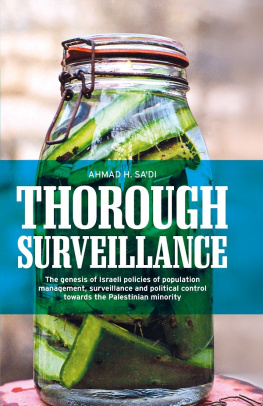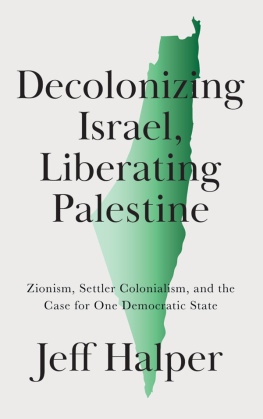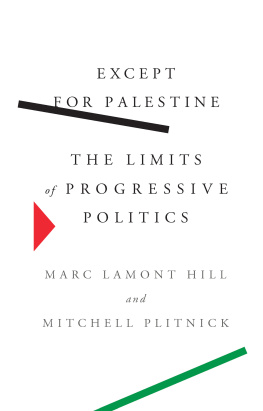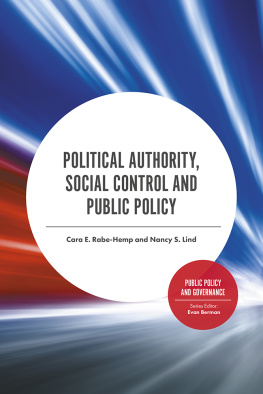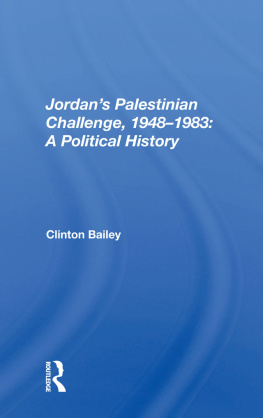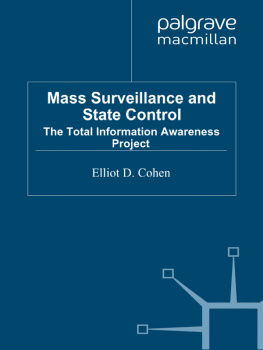Copyright Ahmad H. Sadi 2013
The right of Ahmad H. Sadi to be identified as the author of this work has been asserted by him in accordance with the Copyright, Designs and Patents Act 1988.
Published by Manchester University Press
Oxford Road, Manchester M13 9NR, UK
and Room 400, 175 Fifth Avenue, New York, NY 10010, USA
www.manchesteruniversitypress.co.uk
Distributed in the United States exclusively by
Palgrave Macmillan, 175 Fifth Avenue, New York,
NY 10010, USA
Distributed in Canada exclusively by
UBC Press, University of British Columbia, 2029 West Mall,
Vancouver, BC, Canada V6T 1Z2
British Library Cataloguing-in-Publication Data
A catalogue record for this book is available from the British Library
Library of Congress Cataloging-in-Publication Data applied for
ISBN 978 0 7190 9058 5 hardback
First published 2013
The publisher has no responsibility for the persistence or accuracy of URLs for any external or third-party internet websites referred to in this book, and does not guarantee that any content on such websites is, or will remain, accurate or appropriate.
Typeset
by SPi Publisher Services, Pondicherry, India
For a long time, I have been interested in the methods used by Israel to control its Palestinian citizens. In fact, the first article I published more than twenty years ago was on the politics of Palestinians categorizations by the Israeli state and Israeli social scientists. Since then, I have published quite extensively on this subject. Yet, beside the long and Sisyphean archival research, the work on this book was conducted in three periods. A substantial reading and reflection on the methods of surveillance and political control in comparative perspective was made in JanuaryMarch 2007 during my stay as visiting senior lecturer in the Institute of Islamic Area at Waseda University, Tokyo, Japan. I am therefore indebted to my Japanese friends for their encouragement, support, unique Japanese hospitality and interest in my research. In particular, I am thankful to my friends Professor Akira Usuki and Professor and Mrs. Nagasawa. Moreover, I am thankful to the late Professor Tsugitaka Sato, the then director of the centre, for inviting me and enabling me to spend a memorable period in reading and reflection without burdening me with duties or assignments. I also wish to mention the fellow researchers and the staff of the centre for their enormous help and collegiality and Professor Hidemitsu Kuroki for his collegiality and friendship.
I had the chance to examine some of my ideas in the workshop States of Exception, Surveillance and Population Management, which took place on 67 December 2008 in Larnaca, Cyprus. I wish to thank the organizers Professor Elia Zureik, Professor David Lyon and Professor Yasmein Abu-Laban for enabling me to present some of my ideas before an audience of specialists. This occasion might be ideal to express my thanks to Professor Zureik for his long-standing support, encouragement and friendship. Following this workshop, I composed a report that was commissioned with a grant from the Surveillance Studies Centre at Queens University in Canada, and some of its findings and arguments are presented in .
The bulk of the book the institutes administrative and technical staff. During my stay in Singapore, I also benefited from the friendship and the support of Professor Syed Farid Hussein Alatas.
This book, like any other, is the product of years of accumulative research and intellectual influences. Several people affected my thinking in many and diverse ways. As always, I wish to mention with affection and appreciation Dr. Paul Kelemen, a mentor, friend and a great humanist. His deep and unfailing belief in justice and human dignity has been to me a shining example of commitment to these ideals. Professor Lila Abu-Lughod has also been a sincere and generous friend. Her support and advice are immensely valued. Among many other things, Professor Abu-Lughod read and commented on various chapters, which she did as always with great insight and wisdom.
I am also thankful to Mr Anthony R. Mason, senior editor in Manchester University Press, and his production team for the efforts they made to bring this book to publication in its current form. Mr Mason has been an ideal editor; his understanding, support, attentiveness and open-mindedness throughout the publication process are highly appreciated. Moreover, a note of thanks is due to two anonymous reviewers for reading the manuscript; particularly I owe a special note of thanks to Lianne Slavin, managing production editor, for reading the manuscript several times and for making very insightful suggestions. My thanks also go to Ms Uma Shankar, project manager, SPi Global, for overseeing the copy-editing and the preparation of the manuscript for publication. Yet, needless to say, I assume full responsibility for the arguments and data presented in the book.
Along the way, I benefited from the friendship of many people. The list of such friends is fortunately long. From this list, I would like to mention Ahmad and Rudena Muslih, Elizabeth Muawad, Nimer Samniah, Izzat Darwazeh, Rachel Pollard-Darwazeh and Andre Mazawi. Moreover, my colleagues in the Department of Politics and Government at Ben-Gurion University should be credited for maintaining a sense of normalcy despite adverse conditions.
My parents Hussein Hassan Sadi and Fatima Samniah-Sadi, although having endured the horror of the 1948 War and having lived through depressing sociopolitical realities, maintained their faith in human virtues. This book partly dwells on the stifling conditions they have gone through and faced with steadfastness and bravery.
Last but by no means least, my thanks go to Sylvia Saba-Sadi for being loving, supportive and understanding throughout my long engagement in this project. She read and commented on several draft s of the book and accompanied it from beginning to end. Yara and Sari who have always seen their father interested, beside them, in books, papers and pens are now university students. Their love, their cheer and even their critique of their fathers ideas make life, despite many discontenting, even vile, elements, delightful.
Widely regarded as an expert in techniques of surveillance and political control, Israel has been successful in controlling a native population for a long time. Despite tremendous challenges, it has maintained a tight grip over a large Palestinian population in the territories it occupied in the 1967 War. Moreover, it has effectively contained the Palestinian minority inside its 1948 borders. Although members of the latter group were granted Israeli citizenship, through various policies, they have been blocked from challenging the states Jewish identity. While colonial control of native populations represents a significant aspect of the history of the nineteenth and twentieth centuries, Israels continued administration of a large Palestinian population into the twenty-first century, long After the demise of colonialism, represents a serious challenge for scholars and theorists of colonial forms of political control (Azoulay and Ophir, ).

